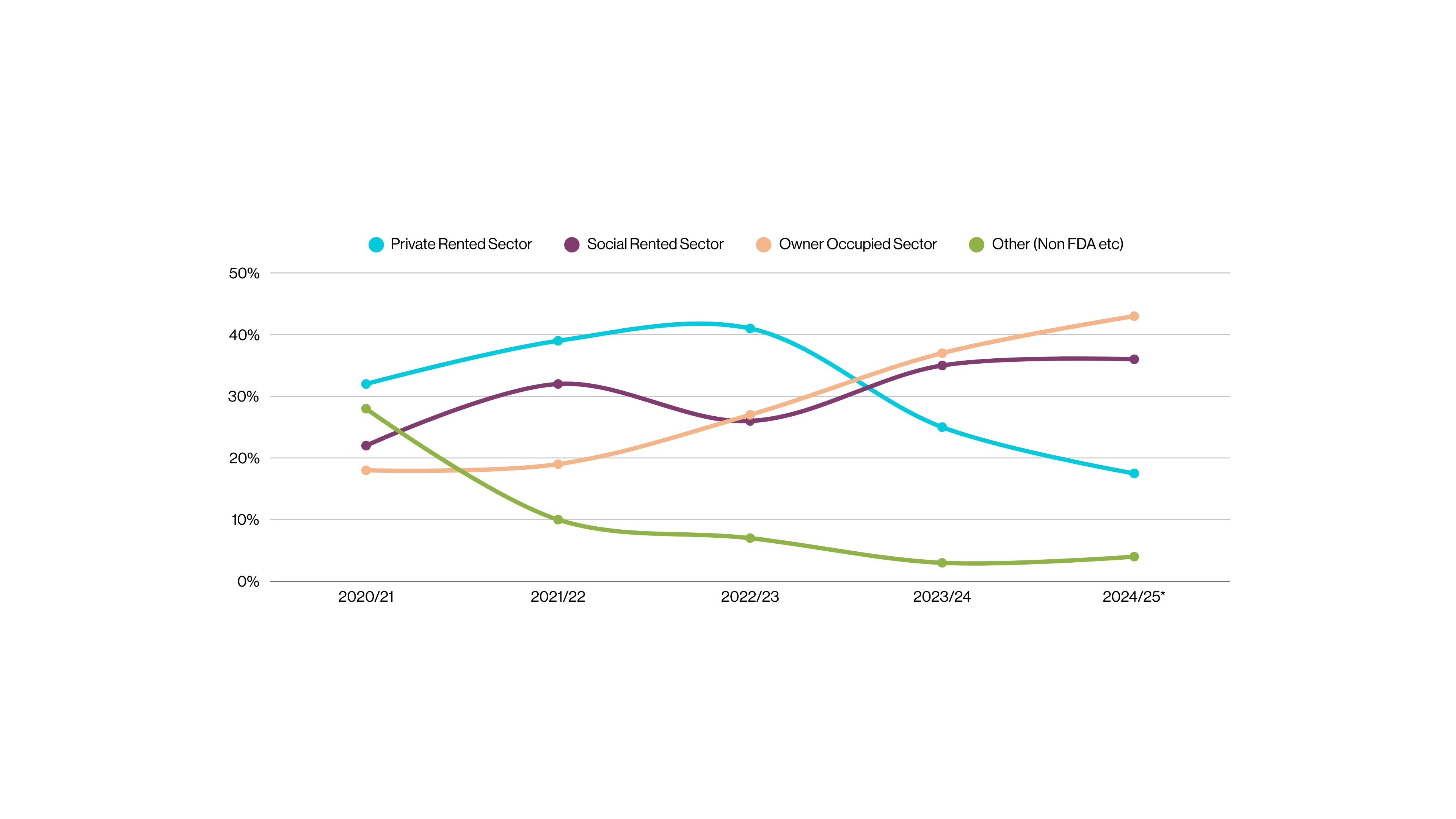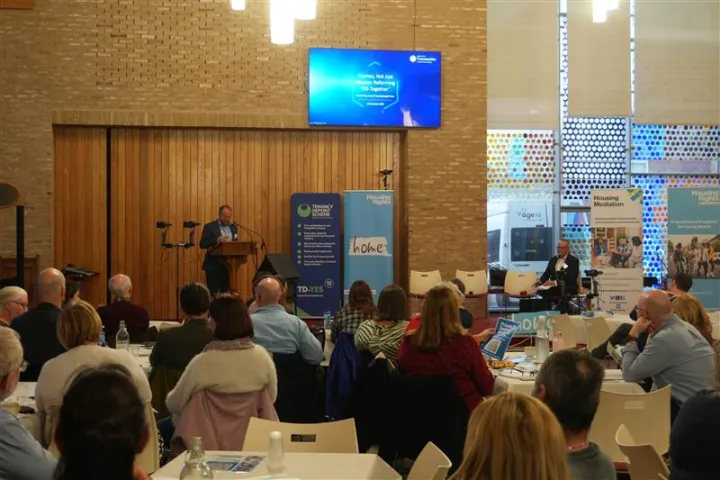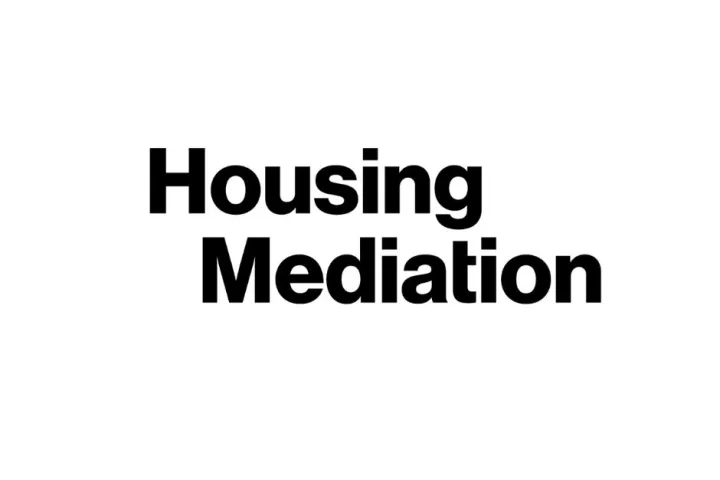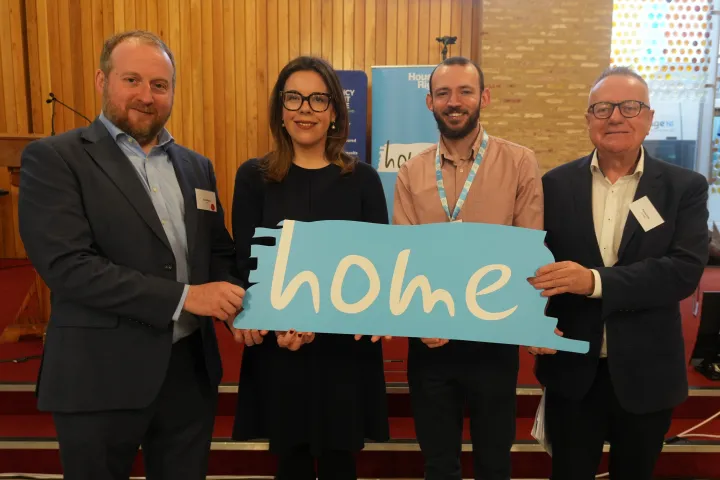There is rightly much political and policy attention on the need to build new homes to tackle our homelessness crisis. The supply of affordable homes is a huge part of the answer to our housing crisis. There has been comparatively less focus until now, though, on how we can strengthen efforts to prevent homelessness in the first place.
At Housing Rights, where our work is oriented towards prevention, we hope that this tide will change. We are concerned, however, that whilst homelessness prevention is possible, doing so is getting much harder. If we are serious about fixing our housing crisis, we must not only build more homes. We must also strengthen the safety nets to keep people safe from losing their homes in the first place.
Preventing homelessness is not a new idea. It is the primary objective of the NIHE Homelessness Strategy. It is also highlighted in the NI Executive’s Programme for Government. Despite this, a recent investigation by the NI Audit Office found that efforts to prioritise homelessness prevention efforts are being hindered. Housing Rights’ work also shows that current efforts are not sufficiently holding against the pressure created by our deepening housing crisis. The Centre for Homelessness Impact is also now advocating for prevention as a smarter approach to homelessness.
How we prevent homelessness
There is a rich evidence base that shows prevention works. In our work we see every day that good advice changes lives. In a housing and homelessness context it also prevents homelessness. We offer a range of prevention interventions which rhyme with best practice evidence about what works in this area. Examples of our services include:
- a free, confidential and cross tenure helpline service and a suite of accessible online information so people know their rights and can get advice.
- support for practitioners through advice, information and training so that everyone across Northern Ireland who seeks advice from other organisations gets the right information and support.
- further advocacy including legal representation to provide crisis prevention to ensure someone does not lose their home and to sustain tenancies.
- emergency prevention activities through representation at court for those who are unrepresented and facing legal action from their landlord or lender.
- targeted prevention activities with bespoke services supporting young people, minoritized communities and people leaving prison custody.
- lobbying using the evidence and insights from our work to improve the law, policy and practice so that everyone in Northern Ireland has a home.
We also collect data from our work so we know where the problem is most acute and where preventing homelessness has become most challenging. For every case of successful homelessness prevention we record, we use a UK government definition (‘P1E’) in a strict process which is externally audited.
Where homelessness prevention is most challenging
We know that preventing homelessness is especially challenging where responsibility for meeting someone’s housing needs requires input from multiple agencies. Examples might include situations where someone’s housing situation is impacted by multiple vulnerabilities – complex health needs, drug and/or alcohol dependencies, where they are leaving hospital or custody etc.
As a result, several agencies have plans and protocols in place to work together. However, this work is often dependent on available resources and on good relationships between those collaborating. At Housing Rights, our work to support individuals in these situations is often made more challenging because it is difficult to legally compel bodies to work together to prevent homelessness and because those bodies do not have sufficient resources to effectively work together. As a result, advocacy becomes complex and sometimes unsatisfactory. All too often people fall through the cracks. Our work also shows us that systems of working collaboratively are not as well established as they need to be, often with (not insurmountable) difficulties sharing data and resources.
More recently, our work has also shown us that traditional efforts to prevent homelessness in the private rented sector is harder. As the chart below (Chart 1: Proportion of total ‘P1E’ s achieved by tenure 2020-25*) shows, despite progress in other sectors, the number of successful cases of homelessness prevention when the household rents privately is falling. 
There are multiple reasons why this is the case:
- rapidly rising rents at 8-10% per annum, with average rents in Belfast reaching £1127 per month
- housing Benefit paid to private renters is not sufficient to prevent homelessness. The rate its paid at, has recently been frozen again. Research from the Joseph Rowntree Foundation has called for Westminster to permanently re-link frozen housing benefits to private rents to address hardship.
- it's difficult for some tenants to find another place to rent when their tenancy ends. This is because of a downward trend in supply in the sector as shown in lettings data from the University of Ulster.
- there are less protections in the sector. Tenants report a lack of security because of ‘no-fault evictions’. There are some poor standards of housing with tenants reporting damp, mould and disrepair,. Some tenants also face discrimination if they receive benefits and unlawful letting fees are still charged.
- there are less available mechanisms to provide practical support for those who don’t have a guarantor, a deposit or the first month’s rent.
As a result, loss of rented accommodation continues to be one of the top three causes of homelessness in Northern Ireland.
How do we strengthen homelessness prevention
A new legal duty
There is a tension between the homelessness policy framework and homelessness legislation in Northern Ireland. One prioritises homelessness prevention and the other requires action only once homelessness is imminent. In other jurisdictions, this tension has been lessened by ensuring the law aligns with policy. It facilitates, empowers and compels those with responsibility to act at an earlier stage to prevent homelessness from occurring. Regrettably, our legislative framework lags behind despite 10+ years of advocacy for change from the housing and homelessness sector.
Decisions about government budgets, where and how to spend resources are based on the legal obligations those authorities have. To the frustration of all those working in the sector, we are therefore not able to advance efforts to prevent homelessness as we would wish to.
Rather than being a radical policy suggestion, it is therefore a pragmatic and strategic approach to argue that a legal duty to prevent homelessness is appropriate. There is also now a roadmap for us to learn from, since we can assess the approach being taken in England, Wales and now Scotland. The approach in Scotland is especially helpful. The Scottish Government brought together a number of experts in the Scottish Prevention Review Group which made recommendations on the legislation. The voice of people with lived and frontline experience of homelessness was also heard through the Prevention Commission. Whilst no system will be perfect, a strong legal framework better supports policy and practice efforts. It will also ensure that we get the best return on the public resources we invest in homelessness. At Housing Rights we continue to advocate for a move in this direction.
A cross-tenure focus
The most striking observation from our work is that whilst homelessness prevention has become harder everywhere post pandemic, it has become especially difficult when the household being helped, rents privately.
Measures which once were effective in the sector, such as Discretionary Housing Payments, are not adequately keeping pace with the growing affordability challenge. We need to ask fundamental questions about how the increasing numbers of households in relative and absolute poverty can have their housing needs met. The relationship between housing costs and poverty should be key in the new NI Executive Anti-Poverty Strategy. We are also seeing that the work to speed up our transition to ‘net zero’ is not being pursued with the same vigor in the areas where housing conditions are worst. It is obviously pragmatic to improve properties in the social rented sector but are we being suitably ambitious for private renters?
The private rented sector is playing an enhanced role in our housing system. An increasing number of vulnerable households live there for longer periods, because of failures in other parts of the housing market. Our government's responsibility to make sure these families also have access to a safe, affordable home which meets their needs does not end because they rent from a private landlord.
It is so important then that a renewed smarter approach redoubles efforts for households in this tenure particularly. Housing Rights is proud to deliver a range of advice and advocacy services for tenants in this sector, but these must be matched by practical and financial support and improved regulatory protection for tenants to stop the risk of homelessness.
Innovation through evidence
The homelessness sector is quickly seeking new insights and approaches to help us solve entrenched problems. Data from official sources and from housing and homelessness services can pinpoint households likely to be most at risk of homelessness and align the provision of support services to help. Data can also help us test and learn with reliable evidence about what works so that we can ramp up efforts. The same is true of participation. The voices and experiences of people with lived experience and those working on the frontline provide direction and concrete evidence to sharpen our collective efforts.


